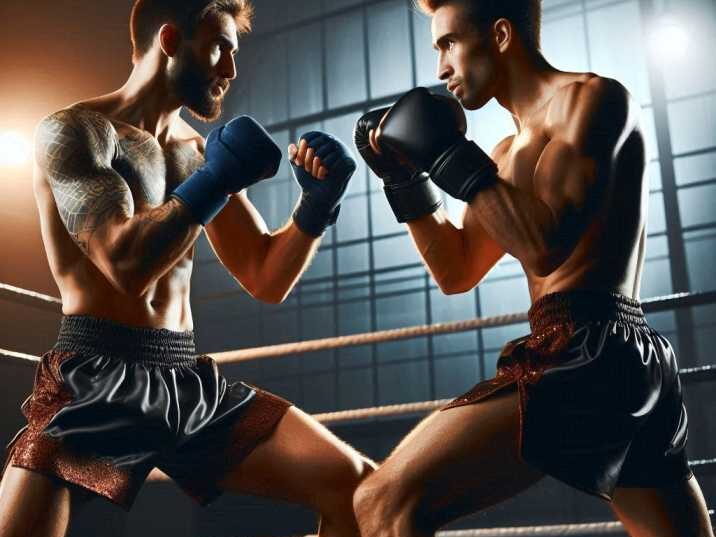Introduction
Table of Contents
Learning martial arts isn’t just about punches and kicks. It’s about building confidence, discipline, and self-defense skills. Whether you’re navigating a tricky situation or simply want to stay fit, martial arts can help. But which form of martial arts is best for Self-Defense? In this article, we’ll explore some of the most popular martial arts, their unique benefits, and how they can prepare you for real-life scenarios.
Training martial arts requires concentration and discipline, which can improve your focus in school, work, and daily activities. By the end of this guide, you’ll understand which martial art is right for you.
Table of Contents
- Benefits of Learning Martial Arts for Self-Defense
- Top Martial Arts for Self-Defense
- Brazilian Jiu-Jitsu
- Krav Maga
- Muay Thai
- Karate
- Boxing
- Taekwondo
- Factors to Consider When Choosing Martial Arts
- How Martial Arts Improve Focus and Discipline
- Frequently Asked Questions (FAQs)
Benefits of Learning Martial Arts for Self-Defense
Learning martial arts offers more than just physical protection. Here are some key benefits:
Improved Confidence
Learning martial arts equips you with the skills to defend yourself, which naturally boosts your self-esteem. As you master techniques and overcome challenges in training, you develop a sense of accomplishment. This confidence often extends to other areas of life, helping you face difficulties with a positive mindset.
Enhanced Fitness
Martial arts are a full-body workout that enhances strength, endurance, and flexibility. Regular practice improves cardiovascular health, coordination, and overall physical condition. This combination not only aids in self-defense but also promotes a healthier, more energetic lifestyle.
Stress Relief
The physical activity involved in martial arts helps release endorphins, reducing stress and anxiety levels. Training provides a productive outlet for pent-up emotions and fosters mindfulness. Many find that the focus required in martial arts also improves mental clarity and emotional resilience.
Situational Awareness
Martial arts training emphasises staying alert and understanding your surroundings. It hones your ability to assess situations, recognise potential threats, and respond effectively. This heightened awareness can help you avoid danger or react swiftly and decisively if needed.
Top Martial Arts for Self-Defense
1. Brazilian Jiu-Jitsu (BJJ)
BJJ focuses on ground fighting and grappling techniques, making it ideal for situations where you might be taken down.
- Key Skills: Joint locks, chokeholds, and escapes.
- Why It’s Effective: BJJ teaches you how to defend yourself against larger opponents by using leverage and technique.
- Fun Fact: BJJ is often called the “gentle art” because it relies on strategy rather than brute strength.

2. Krav Maga
Krav Maga is a self-defense system developed for the Israeli military. It’s known for its practicality and focus on real-world scenarios.
- Key Skills: Defending against armed attackers, disarming techniques, and quick counter-attacks.
- Why It’s Effective: Krav Maga combines techniques from boxing, wrestling, and judo for maximum efficiency.
- Best For: Adults looking for practical, no-nonsense self-defense.
3. Muay Thai
Known as the “Art of Eight Limbs,” Muay Thai uses punches, kicks, elbows, and knees for a comprehensive striking technique.
- Key Skills: Striking, clinching, and blocking.
- Why It’s Effective: Muay Thai builds strength and stamina, making it great for standing fights.
- Fun Fact: Muay Thai is Thailand’s national sport!
4. Karate
Karate emphasizes disciplined strikes, blocks, and movements.
- Key Skills: Kicks, punches, and defensive stances.
- Why It’s Effective: Karate teaches precision and the ability to remain calm under pressure.
- Who It’s For: Kids and adults looking for a structured martial art.
5. Boxing
Boxing focuses on punches and footwork, making it simple yet effective.
- Key Skills: Jabs, hooks, and defensive maneuvers.
- Why It’s Effective: Quick reflexes and timing can neutralize an attacker.
6. Taekwondo
Taekwondo is known for its dynamic kicks and Olympic presence.
- Key Skills: High kicks, spinning kicks, and jumping techniques.
- Why It’s Effective: Taekwondo improves flexibility and balance while providing solid self-defense techniques.
Factors to Consider When Choosing Martial Arts
Your Goals
Think about what you want to achieve. If you’re looking for self-defense, arts like Krav Maga may suit you, while Brazilian Jiu-Jitsu and Muay Thai are great for fitness. For competition, Taekwondo or Judo could be ideal. Knowing your goal helps narrow down your options.
Physical Condition
Some martial arts are physically demanding, like MMA or Capoeira, while others, such as Tai Chi, are gentler and focus on balance and relaxation. Assess your current fitness level and choose a style that matches your capabilities and challenges you without risking injury.
Local Availability
Check for dojos, gyms, or studios near you that teach the martial art you’re interested in. Look for qualified, experienced instructors who can guide you effectively. Convenience plays a big role in maintaining consistency in your training.
Cost
Training costs vary widely based on the art, instructor, and location. Factor in membership fees, gear expenses, and potential tournament fees if applicable. Ensure the program fits your budget while offering quality training.
How Martial Arts Improve Focus and Discipline
Better Academic Performance
Martial arts demand mental focus to learn techniques and perform them effectively. This practice enhances your ability to concentrate, which can carry over to school or work, improving productivity and performance in other areas.
Improved Time Management
Consistent martial arts training requires scheduling regular practice sessions. Over time, you develop habits of planning and balancing commitments, which can translate to better time management in daily life.
Respect and Responsibility
Martial arts emphasize respect for instructors, peers, and traditions. They instill discipline through structured lessons and accountability for progress, teaching life values like humility, responsibility, and respect for others.
Conclusion
This article aims to help readers choose the best martial art for self-defense while emphasizing the mental and physical benefits of training. Let me know if you’d like any adjustments or additional details!
FAQs
1. Which martial art is best for beginners?
Karate and Taekwondo are great for beginners because they offer structured training.
2. Is Brazilian Jiu-Jitsu good for self-defense?
Yes, BJJ is excellent for self-defense, especially in ground-fighting scenarios.
3. How long does it take to learn self-defense?
It depends on the martial art and your dedication, but basic skills can be learned in a few months.
4. Is Krav Maga suitable for kids?
While Krav Maga is effective, some techniques may be too intense for young children.
5. Can martial arts help with confidence?
Absolutely! Martial arts training builds self-esteem by teaching you how to protect yourself.


